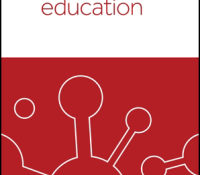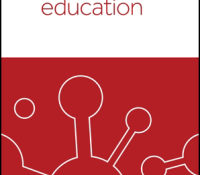
tandfonline.com har udgivet en rapport under søgningen “Teacher Education Mathematics”: Abstract Abstract This exploratory mixed-methods study set out to explore Maltese primary school teachers’ perceived barriers to, and enablers for, the integration of children’s literature in mathematics teaching. Data were collected by means of an online questionnaire and semi-structured interviews, and analysed thematically using Ajzen’s Theory of Planned Behaviour. The responses given by the participants showed that integration of mathematics and stories was not a common practice. The perceived barriers were categorised as Resource Constraint, Time Constraint, Lack of Pedagogical Knowledge and Confidence, Doubts about Outcome Expectancy, and Inhibiting Social Norms while the three perceived enablers identified were Pedagogical Benefits, Love of Stories, and Enabling Social Norms. Given that the majority of the participating teachers acknowledged the potential benefits of… Continue Reading →
Like this:
Like Loading...
eric.ed.gov har udgivet: Embedding computers in math teaching is not a totally new issue, but the dilemmas related to it multiply more rapidly than the answers are being supplied. This study asks: What is the most appropriate way to prepare instrumentally and mentally the future math teachers to the reality demanding permanent competent adjustment to rapidly developing computerized environment in math teaching? In order to try to refer to this question at least partially, the authors designed a research project in which they studied the performances of several groups of students, studying several courses at different levels of mathematical knowledge and embedding a variety of computerized tools. Moreover, they induced all of the students to experience at least two-three different computerized tools in different courses during three years of their… Continue Reading →
Like this:
Like Loading...
tandfonline.com har udgivet en rapport under søgningen “Teacher Education Mathematics”: Abstract Formulae display:?Mathematical formulae have been encoded as MathML and are displayed in this HTML version using MathJax in order to improve their display. Uncheck the box to turn MathJax off. This feature requires Javascript. Click on a formula to zoom. Abstract Scholars have long argued that individuals’ beliefs influence their behaviors and the decisions they make throughout their lives. Focusing on beliefs as a cognitive construct, the purpose of this study was to identify several key beliefs about mathematics teaching and learning held by practicing elementary mathematics teachers. An iterative process of literature review, item development and adaptation, expert review of items, and cognitive interviews resulted in 55 items and 5 hypothesized belief constructs. After using the items in… Continue Reading →
Like this:
Like Loading...
eric.ed.gov har udgivet: This study was designed to initiate the process of building professional development learning communities for pre-service math teachers through revealing those teachers’ conceptions/beliefs of students’ learning and their own learning in China. It examines Chinese pre-service math teachers’ conceptions of student learning and their related pedagogical beliefs with respect to the following four aspects: self-regulation, construction of knowledge, the social nature of learning, and a dynamic view of ability. A total of 129 middle-school and secondary pre-service math teachers from China participated in this study. The results indicated that the Chinese pre-service teachers’ conceptions of student learning and their pedagogical beliefs are constructive, process-oriented, and progressive. In addition, the traditional Chinese socio-cultural values still have an impact on the pre-service teachers’ conceptions of student learning. Implications and… Continue Reading →
Like this:
Like Loading...
eric.ed.gov har udgivet: The self-efficacy beliefs teachers hold about their ability to teach subjects shapes their competence in teaching. Teacher self-efficacy is defined as teacher beliefs in their ability to perform a teaching task. If teachers have strong teacher self-efficacy in the teaching of arts education, they are more likely to incorporate arts in the classroom. Alternatively, if teachers have weak teacher self-efficacy in the teaching of arts education they are less likely to include aspects of the arts in their curriculum. Little is known about teacher self-efficacy beliefs towards arts education in early childhood education. Since arts education is an important element in the curriculum of any classroom–including all early childhood classrooms–investigation of the beliefs that shape teacher practice is desirable. In 2010, a survey was distributed using convenience… Continue Reading →
Like this:
Like Loading...

tandfonline.com har udgivet en rapport under søgningen “Teacher Education Mathematics”: ABSTRACT ABSTRACT Previous studies have indicated that, although some teachers have substantial expectation effects on student outcomes, the effects for most teachers are only small. Furthermore, teacher expectations are associated with key pedagogical differences related to teacher beliefs about providing instruction and support for learning. The aim of this study was to explore (a) teacher-level differences in the level and differentiation of expectations, (b) associations between teacher differences in expectations and teacher background and beliefs, and (c) relationships with subsequent student performance. Secondary analyses were performed on data for 42 teachers and their students in New Zealand. The results were supportive of the notion that some teachers were differentiating more between students in their expectations than others. Teachers who differentiated… Continue Reading →
Like this:
Like Loading...
eric.ed.gov har udgivet: This case study of a math and science teacher in a private religious school looks at the impact of a teacher’s religious beliefs on her experience of engaging with ethical issues in her practice. A Freirean ethical framework is used to analyze her struggles with differences between her own personal religious convictions and those of the school in which she teaches, avoiding undue influence on her students’ developing beliefs, and the inherent violence of schooling. This case provides an example of ways in which discussions with teachers about professional ethics might be broadened beyond codes and regulations to the everyday embodied, social milieu in which they work. Link til kilde
Like this:
Like Loading...
eric.ed.gov har udgivet: The aim of the study is to determine the relationship between primary school pre-service teachers’ self-efficacy beliefs in teaching Mathematics and First Reading and Writing courses. The sample consists of 484 1st and 4th grade pre-service teachers selected from four universities in Turkey. In the study, Mathematics and First Reading and Writing Teaching Self-Efficacy Scale were used as data collection tools. Besides descriptive statistical techniques, Independent Sample T-test was used to determine whether the pre-service teachers’ self-efficacy beliefs differed according to some factors and Pearson Product-Moment Correlation analysis was used to determine the relationship between the pre-service teachers’ beliefs in teaching Math and First Reading and Writing. As a result of the research, it was found that the levels of self-efficacy beliefs of the primary school pre-service… Continue Reading →
Like this:
Like Loading...
eric.ed.gov har udgivet: The aim of this study is four fold: (a) to investigate the beliefs of elementary (grades 1-3) and middle school (4-6 grades) math teachers about teaching, learning and nature of mathematics; (b) to explore their teaching practices of mathematics; (c) to study the impact of their educational qualifications, years of experience, major on their beliefs toward teaching, learning and nature of mathematics, and; (d) to explore the relationship between their beliefs about teaching learning and nature of mathematics and their teaching practices. Data were collected using two questionnaires: the Math Teacher Beliefs Scale and the Mathematics Teaching Practices Scale. The study sample consisted of 101 teachers who teach in 11 private schools located in Amman, Jordan. The result of this study showed that teachers’ beliefs towards teaching… Continue Reading →
Like this:
Like Loading...
eric.ed.gov har udgivet: Research on impact of teacher beliefs on their practices has been recognized as one of the important aspects in the discipline of mathematics education. This study reports the results of a case study that gives an insight about the influence of professed beliefs of pre-service secondary mathematics teachers on their instructional practices in the Sri Lankan context. The pre-service teachers’ professed beliefs were examined by using a questionnaire of six-point Likert scale items. Data on instructional practices were collected through classroom teaching observations and follow-up post-lesson interviews. Qualitative analysis of the audio-taped classroom teaching observation transcripts was performed, using a list of sensitizing concepts that reflected flexible and rigid beliefs aspects. The results reveal that professed beliefs encouraged them to adopt flexible practices, but to differing extents… Continue Reading →
Like this:
Like Loading...


